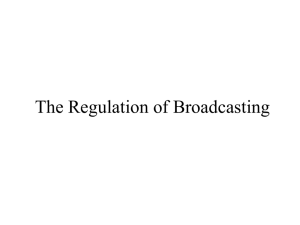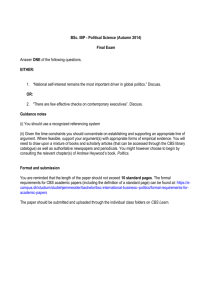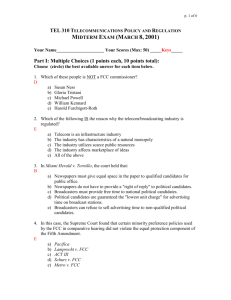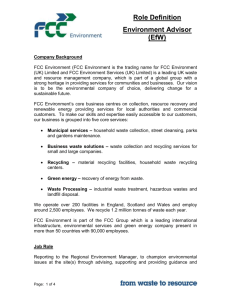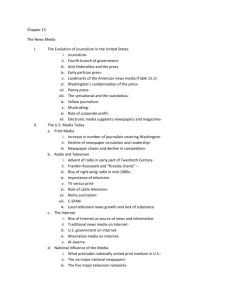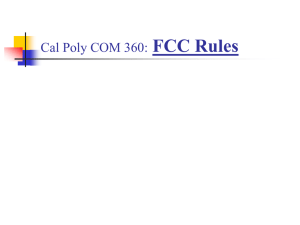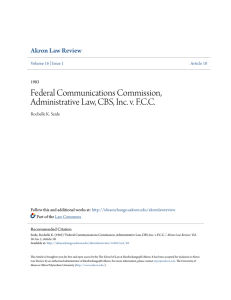Broadcasters Assess FCC Video Competition Report
advertisement
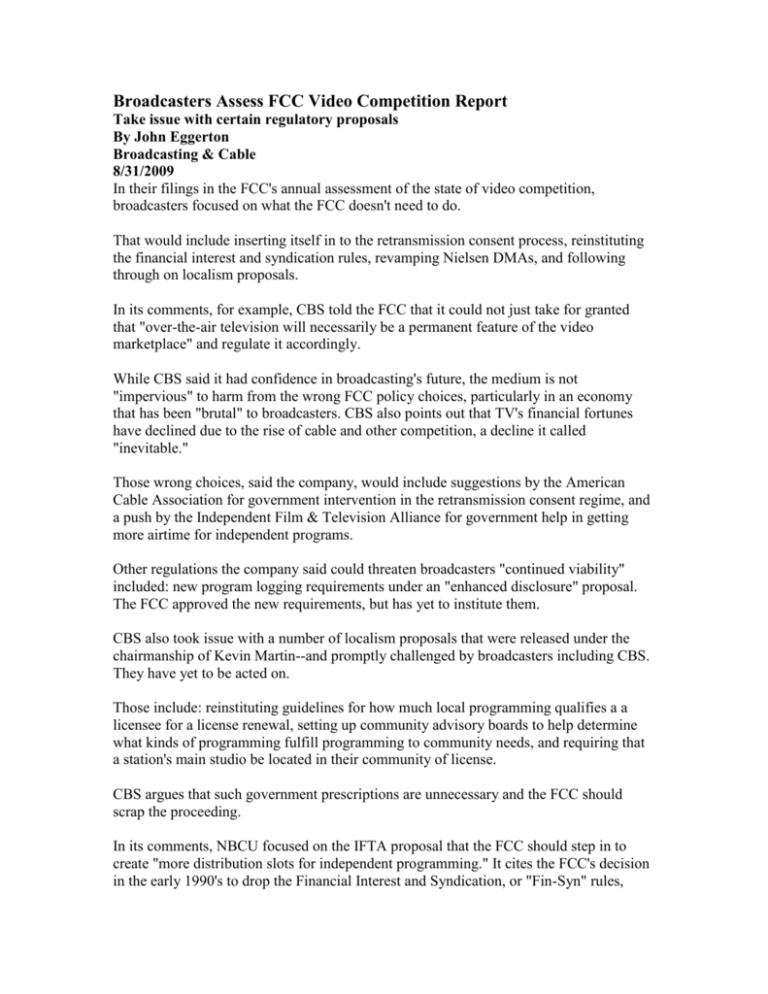
Broadcasters Assess FCC Video Competition Report Take issue with certain regulatory proposals By John Eggerton Broadcasting & Cable 8/31/2009 In their filings in the FCC's annual assessment of the state of video competition, broadcasters focused on what the FCC doesn't need to do. That would include inserting itself in to the retransmission consent process, reinstituting the financial interest and syndication rules, revamping Nielsen DMAs, and following through on localism proposals. In its comments, for example, CBS told the FCC that it could not just take for granted that "over-the-air television will necessarily be a permanent feature of the video marketplace" and regulate it accordingly. While CBS said it had confidence in broadcasting's future, the medium is not "impervious" to harm from the wrong FCC policy choices, particularly in an economy that has been "brutal" to broadcasters. CBS also points out that TV's financial fortunes have declined due to the rise of cable and other competition, a decline it called "inevitable." Those wrong choices, said the company, would include suggestions by the American Cable Association for government intervention in the retransmission consent regime, and a push by the Independent Film & Television Alliance for government help in getting more airtime for independent programs. Other regulations the company said could threaten broadcasters "continued viability" included: new program logging requirements under an "enhanced disclosure" proposal. The FCC approved the new requirements, but has yet to institute them. CBS also took issue with a number of localism proposals that were released under the chairmanship of Kevin Martin--and promptly challenged by broadcasters including CBS. They have yet to be acted on. Those include: reinstituting guidelines for how much local programming qualifies a a licensee for a license renewal, setting up community advisory boards to help determine what kinds of programming fulfill programming to community needs, and requiring that a station's main studio be located in their community of license. CBS argues that such government prescriptions are unnecessary and the FCC should scrap the proceeding. In its comments, NBCU focused on the IFTA proposal that the FCC should step in to create "more distribution slots for independent programming." It cites the FCC's decision in the early 1990's to drop the Financial Interest and Syndication, or "Fin-Syn" rules, combined with the increasing consolidation of broadcast networks and major studios, with helping to create what it called variously a "wide gorge" and "Grand Canyon-sized gap" between distribution of independent programming and that of the major studios. The Fin-Syn rules prevented the networks from taking a financial interest in the domestic syndication of their off-network fare. Focusing its comments on what it labeled a "small minority of commenters" call for "a return to 1970's-style regulation, NBCU said competition abounds. "[T]he Commission will recognize that it should reject the Fin-Syn Proposals as both procedurally and substantively deficient since they are beyond the scope of the Notice and fail to advance any valid purpose. In light of the dramatic changes in the television market, including the significant increase in the number of channels available to most consumers, a regulation premised on government imposed source diversity cannot stand."
